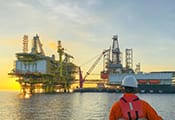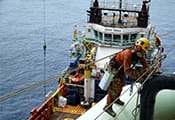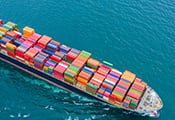Marine Hazards Every Exporter and Importer Should Worry About
A vessel generally carries hazardous goods that need special attention and care regarding loading, transportation and unloading. Let us discuss some marine hazards every exporter and importer should worry about.
Cargo Falls
Cargoes, including steel, iron, etc, usually have high densities. Therefore, such cargo may fall while discharging the operations. It may fall on the ship deck. Workers working on the ship may sustain a severe injury. In addition, such a fall may also cause death to the worker. Therefore, the concerned supervisor must be obliged to monitor such operations. He needs to ensure that everyone should be present in the working area. He should ensure that every worker possesses or wears a helmet and other safety gear to avoid such risks.
Dust on the Cargo
Dust is another marine hazard every exporter and importer should worry about. Bulk cargo generally consists of specks of dust. Inhaling such dust may cause severe injury to the health of the workers. It may further irritate the eyes. In addition, the dust available in the cargo may cause sneezing issues. Therefore, it should be mandated by the vessel owner or caption of the ship that everyone wears a respirator while loading and unloading goods. Moreover, they must ensure that the goods or machinery are dust-free.
Fire
Fire is another risk that every exporter and importer of goods should worry about. The fire may emanate in the ship due to heat produced by bulk cargo.
For example, some cargo such as cotton, fishmeal and coal are likely to have heat and may be the cause of the fire on the vessel. Coal is famous for emitting flam gas. It may be explosive if it mixes with air.
Another cargo like Sulpher may cause dust which may explode at any moment. Therefore, the crew and caption of the ship must take necessary precautions to avoid fire. The exporter and importer must purchase or subscribe to a marine insurance policy in order to mitigate the losses caused by fire. The marine policy covers the loss or damage caused due to fire.
Oxygen Issue
Woods and agricultural goods may cause oxygen depletion in the ship. Such goods may release carbon dioxide. These kinds of shipments may cause a worker's life. The space remaining in the carriers may create a toxic atmosphere for the workers.
In addition, it may also cause accidents. Coal, fertilizers, and iron may deplete oxygen. These goods are also known for releasing gasses, including hydrocarbons, Carbon monoxide, and Carbon dioxide. Therefore, the exporter must ensure ventilation and properly inspect the ship before allowing the personnel to move to the ship.
Conclusion
One may notice several marine hazards every exporter and importer should worry about. The exporter and importer are required to inspect the ship at several intervals. The shipper must ensure to carry essential items such as a First Aid box in order to avoid medical issues. Further, the exporter must purchase a marine insurance policy in order to ensure the safety of the goods. The marine insurance policy indemnifies the policyholder against any loss or damage caused to the cargo loaded on the ship.


































 Expert advice made easy
Expert advice made easy


